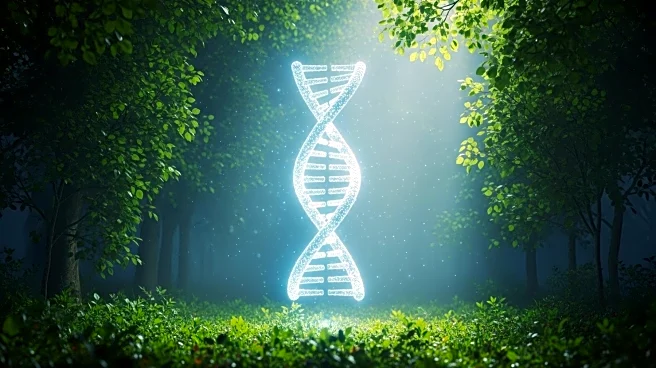What's Happening?
Scientists are currently exploring the genetic modification of wildlife to enhance resilience against climate change and disease. This scientific endeavor aims to create plants and animals that can better withstand environmental challenges. However, there is a significant divide within the scientific community regarding the ethical and ecological implications of releasing genetically modified species into the wild. The debate centers on whether these modifications could disrupt natural ecosystems or provide necessary adaptations to changing climates. A vote is anticipated to determine if these genetically altered species should be introduced into natural habitats.
Why It's Important?
The potential release of genetically modified wildlife carries profound implications for biodiversity and ecosystem management. If successful, these modifications could offer solutions to environmental challenges, such as species extinction and habitat degradation. However, there are concerns about unintended consequences, including the disruption of existing ecosystems and the ethical considerations of altering natural species. The decision to release genetically modified organisms into the wild could set a precedent for future scientific interventions in nature, impacting conservation strategies and environmental policies.
What's Next?
A vote is expected to take place to decide whether genetically modified species should be released into the wild. This decision will likely involve input from various stakeholders, including environmentalists, policymakers, and the scientific community. The outcome could influence future research directions and regulatory frameworks governing genetic modification in wildlife. Stakeholders may also consider the long-term ecological impacts and ethical considerations associated with this scientific approach.
Beyond the Headlines
The debate over genetically modifying wildlife touches on broader ethical and ecological issues. It raises questions about human intervention in natural processes and the potential for unforeseen consequences. The decision could influence public perception of genetic engineering and its role in addressing environmental challenges. Additionally, it may prompt discussions on the balance between technological advancement and conservation ethics.








